Community Leadership & Civic Engagement (LIBA/CLCE)
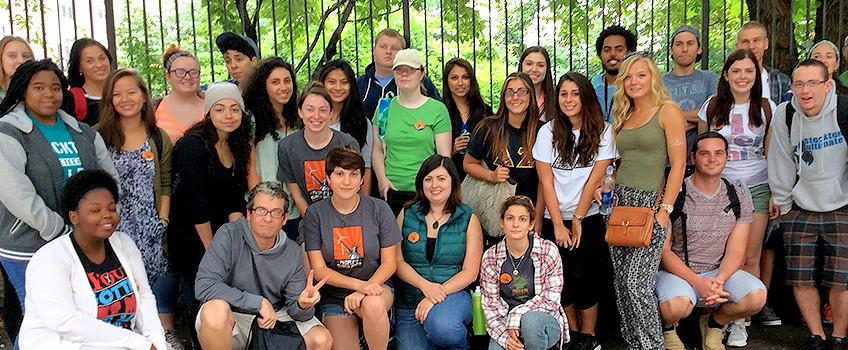
Group photo of CLCE LIBA students
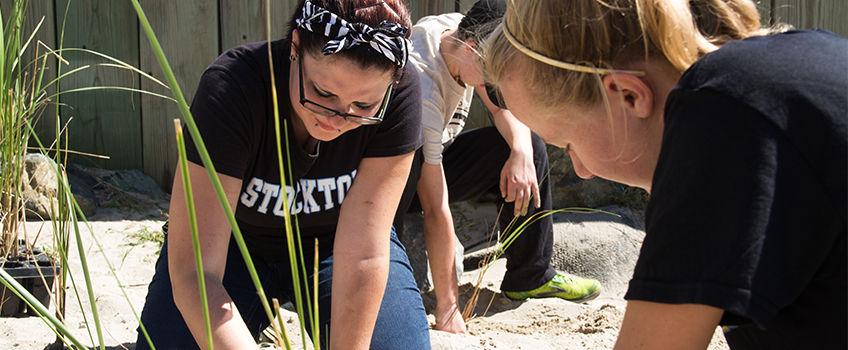
Students replanting dune grasses
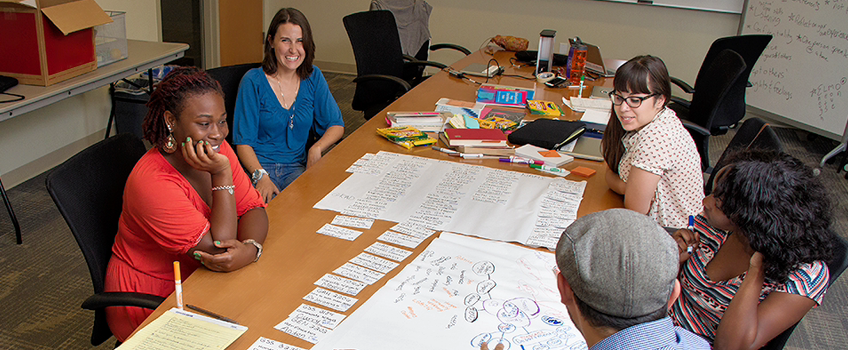
Service learning students meeting in a classroom
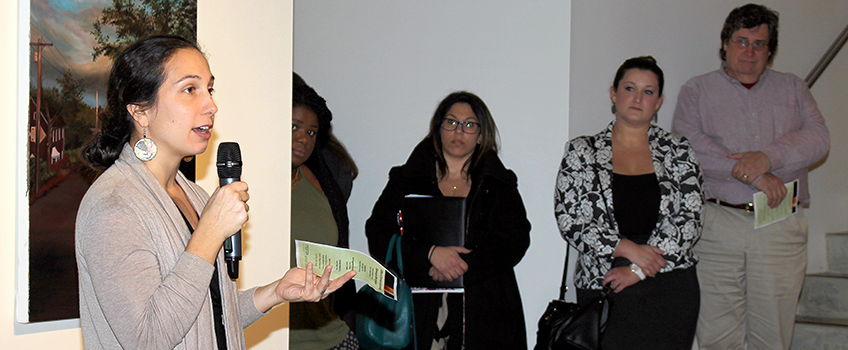
Student event in the art gallery
The Bachelor of Arts in Liberal Studies with a concentration in Community Leadership and Civic Engagement (LIBA/CLCE) is an option for students who want to transform their learning, their communities and themselves.
LIBA/CLCE majors work with an academic advisor to design a complete 128-credit interdisciplinary program suited to their individual needs and plans. Like the regular LIBA degree, the LIBA/CLCE degree provides extraordinary opportunities for creativity in educational planning, and allows students to take advantage of a wide range of Stockton’s courses and resources for applied, experiential learning within campus and community networks.
Curriculum Worksheet:
The LIBA/CLCE program prepares students for careers in:
- Community-based organizations
- State and local government
- Non-profit organizations
- Non-governmental organizations (NGOs)
- Private industries
- Entrepreneurship
CLCE students work closely with faculty advisors to design their own interdisciplinary or field-specific pathways with an emphasis on leadership and engagement.
While satisfying the normal requirements for the LIBA degree, LIBA/CLCE students take
16 credits selected from a range of specially-designated CLCE courses which utilize
project-based, experiential, or service-focused learning. Through these and other
independent studies, self-designed projects and internships, CLCE students have opportunities
to take learning outside the classroom, and to put into practice the civic function
of learning in real-world settings.
How to become a LIBA/CLCE major:
LIBA/CLCE incorporates a core set of specially-designated General Studies classes and other disciplinary courses into students’ individualized learning plans. Like any Stockton degree program, LIBA/CLCE must show coherence, breadth of education and depth of study in a particular area, in addition to incorporating the CLCE-designated courses. These courses have been designated as CLCE courses because they focus on operationalized learning: community-engaged, experiential, project-based and service learning courses are central to the concentration, as are independent studies and internships that situate learning in community-engaged contexts.
To become a LIBA/CLCE major, students must work with their advisor to prepare a proposal for multidisciplinary study, and must have that proposal approved by the CLCE convenor and the dean of General Studies.
LIBA/CLCE majors are not exempt from the university General Studies requirement, which must be taken separately from their pursuit of a CLCE concentration. Therefore, LIBA/CLCE courses within specific General Studies categories (GAH, GSS, GNM) must be taken in addition to the regular 32 credits of General Studies courses required of all students in all majors.
Although proposals resembling an existing degree program may be approved, the LIBA/CLCE major may not replicate or replace an established program in another school. Students pursuing a specific career or graduate study will be advised to solicit and consider the advice of faculty in similar or related disciplines and programs.
The organization of a Liberal Studies B.A. may take several forms depending on the particular interests and needs of the student. The course of study, and the proposal describing it, must reflect a central unifying purpose or theme.
In recent years, students have pursued the following interests through the LIBA Program:
- Thematic/topical — interdisciplinary exploration of a particular theme or topic (e.g., “Freedom and Constraint” and “The World, Its People, and Their Art”);
- Expanded study in a topical program (e.g., gerontology, Women’s Studies, American studies or humanities)
- Pre-professional — interdisciplinary study intended to prepare the student either to enter a particular career field (e.g., wildlife illustration or fine arts management), or to attend graduate or professional school in a variety of areas.
- The basic requirements for students undertaking a Liberal Studies B.A. involve thinking
and planning the degree program. In close consultation with an advisor and with counsel
from faculty members in areas proximate to the student’s goals, students will develop
a coherent set of classroom courses, independent study projects and (if appropriate)
off-campus experiences, all of which are intended to meet the particular objectives
of the degree plan. Proposals will be reviewed by the preceptor, the LIBA convenor
and the dean of General Studies. The student should also plan for a senior project
that will provide a capstone for the program and an opportunity to demonstrate what
he/she has learned.
- Planning for a LIBA should normally be started before a student reaches junior status.
Therefore, transfer students with junior standing must act quickly if they wish to
pursue the LIBA option.
- Final approval must be obtained prior to achievement of senior status (i.e., before
the 96th credit is completed). A proposal will be considered only if it calls for
a least a full year of additional course work (32 credits) subsequent to its approval.
Approval is normally obtained prior to the completion of 80 credits.
- Students interested in pursuing the Liberal Studies B.A. should discuss their ideas
with staff in the Center for Academic Advising (CC242) as early as possible and consult
regularly with their preceptor and Academic Advising while developing their plans.
The preceptor will help students obtain advice from at least two faculty members who
will serve as co-sponsors for their programs. As LIBA programs are usually interdisciplinary,
these faculty members should represent different disciplines.
- The most important requirement for entering the Liberal B.A. program is the preparation of a written proposal. Detailed instructions for preparing a proposal are available from the Center for Academic Advising (CC242). The Liberal B.A. program is not intended to be a default option for students in other majors who may not earn enough credits to graduate from another program.
The Intra-School LIBA provides loose guidelines for LIBA degree opportunities for students who might have difficulty mapping out his/her curricula. These prompts are comprised of courses taken across Programs in a particular School (Intra-School LIBA) and those that include courses in General Studies’ minors. These prompts offer examples only; individual students should craft a curriculum that suits his/her academic, professional, and personal goals.
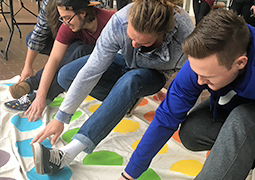

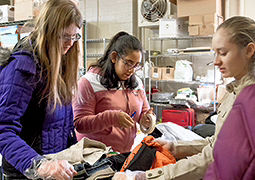
Student Testimonials:
Stockton invested in me as a student. I think that makes a big difference. When I got here, I was so supported and loved by my professors. They were my friends and my peers and they have kind of steered my life in this direction.

B.A, Sociology & Anthropology '16
Community Leadership & Civic Engagement is about being a part of something bigger than just yourself. It provides you a platform in your community to engage others in conversations.
Class of 2018
In my opinion, being a part of Service-Learning at Stockton means being an advocate for the students on campus who may not feel like they have a voice.
Class of 2018
The following areas may be explored by CLCE graduates for careers or advanced study:
- Business Administration
- Public Administration
- Public History / American Studies / Ethnic Studies
- Public Arts Studies / Public Humanities / Arts Administration
- Museum Studies
- Organizational Leadership
- Social Work
- Law
- Urban Planning
- Public Policy
- Human Ecology
- Sociology
- Political Science
- Environmental Science and Management
- Public Affairs / Nonprofit Management / Philanthropic Studies
- Education


